 Welcome to the world of earthworms, a hidden treasure trove of nutrients for your reptilian pet! These slim, wiggly creatures may not look like much at first glance, but they pack a powerful punch to provide your scaly companion with a balanced and nourishing diet. Earthworms are like nature’s little superfood factories, teeming with proteins, fats, and moisture that reptiles need to thrive.
Welcome to the world of earthworms, a hidden treasure trove of nutrients for your reptilian pet! These slim, wiggly creatures may not look like much at first glance, but they pack a powerful punch to provide your scaly companion with a balanced and nourishing diet. Earthworms are like nature’s little superfood factories, teeming with proteins, fats, and moisture that reptiles need to thrive.
So, let’s dig deeper into the wonders of earthworms for reptiles and discover why they make such a fantastic source of nutrients for your reptilian friend. Prepare to be amazed by the remarkable benefits these humble invertebrates can bring to your reptile’s health and well-being!
Earthworms for Reptiles: An Excellent Source of Nutrients
Earthworms can do wonders for your garden, but they are also a reptilian delicacy packed with an abundance of nutrients! These wriggly wonders offer a compelling blend of protein, fat, and moisture, making them a fantastic dietary choice for many reptile species. Lizards and turtles, particularly, relish the protein-rich feast that earthworms provide.
These incredible invertebrates are like a nutritional treasure trove. They boast essential nutrients such as calcium, phosphorus, and a medley of vitamins contributing to your scaly friend’s well-being. Also, earthworms are a hydration haven, especially for reptiles not keen on sipping water regularly. Talk about a one-stop shop for nutrition and hydration!
Feeding your reptile earthworms isn’t just about filling their bellies; it’s a whole experience. Hunting and devouring these wiggling treats engages your reptile’s instincts and stimulates their minds. It’s a win-win situation for both nourishment and mental enrichment!
Naturally, you must be cautious about the source of your earthworms for reptiles. Ensure that the ones you offer your reptilian companion are safe and suitable for consumption. Stay away from areas that might be contaminated with pesticides or herbicides, and instead opt for earthworms from reputable sources that raise them as reptile food, like Uncle Jim’s mealworms.
Remember, while earthworms are an excellent reptile food, a well-rounded and varied menu is crucial. Depending on the specific reptile species, incorporating other food items like insects, fruits, vegetables, or commercial reptile diets may be necessary to meet their nutritional requirements fully.
To guarantee your reptilian pal receives the optimal and balanced diet they deserve, it’s always wise to seek the guidance of a veterinarian or reptile nutrition expert. They can provide personalized recommendations based on your pet’s specific needs, ensuring they thrive in the most vibrant way possible.
What Are the Nutritional Benefits of Feeding Earthworms to Reptiles?
Get ready to discover the incredible nutritional benefits of earthworms for reptiles. Here’s the lowdown on why these are the superheroes of reptile nutrition:
- Protein powerhouse: Earthworms pack a protein punch that reptiles adore! Protein is essential for growth, tissue repair, and overall development. Earthworms are a delicious and nutritious treat for reptiles craving a high-protein diet, like carnivorous and insectivorous species.
- Hydration sensation: When it comes to staying hydrated, earthworms are here to save the day! With their high moisture content, these wiggly wonders provide extra hydration for reptiles. It’s a win-win for reptiles who struggle to drink water readily or need extra moisture.
- Essential nutrients galore: Earthworms are packed with a treasure trove of essential nutrients reptiles need to thrive. They’re loaded with vitamins like vitamins A, E, and B, which keep reptiles in tip-top shape. Plus, they offer essential minerals such as calcium, phosphorus, and iron, which are crucial for strong bones, metabolic functions, and oxygen transport.
- Easy digestion: Earthworms are the digestible dream for reptiles. Their softer texture and ease of breakdown make them a breeze to digest. Reptiles can slurp those nutrients enthusiastically, ensuring efficient absorption and optimal nutrition.
- Thrilling adventure: It’s not just about the nutrients – feeding earthworms to reptiles provides an enriching experience! The thrill of hunting, capturing, and devouring live prey like earthworms taps into a reptile’s instincts, providing both physical and mental stimulation. It’s like a mini-adventure in every bite!
Which Reptiles Thrive on Earthworms?
If you’re wondering: “What do reptiles eat?” you’ve come to the right place. Earthworms as food are the secret to satisfying the nutritional cravings of various reptile species. These wriggly wonders are especially sought after by reptiles needing a generous amount of protein. Check out the reptiles that adore these delectable treats:
- Lizards: Bearded dragons, blue-tongued skinks, leopard geckos, monitors, and certain iguana species can’t resist the allure of earthworms. Packed with protein, moisture, and essential nutrients, earthworms keep these lizards in tip-top shape.
- Aquatic turtles: For aquatic turtles like red-eared sliders, painted turtles, and musk turtles, earthworms are an attractive addition to their diet. These squiggly delights provide a protein boost and quench their thirst with their moisture-rich nature.
- Tortoises: Some tortoises enjoy the occasional protein-packed earthworm feast. While the specific tortoise species may vary, Russian and certain Mediterranean tortoises may relish earthworms as food.
Now, here’s the scoop: dietary preferences and requirements can differ even among individuals of the same species. Factors like health conditions and personal taste come into play. That’s why it’s always wise to consult a reptile veterinarian or nutrition expert. They’ll help you curate the perfect, well-rounded diet that suits your reptilian companion.
What Are the Best Earthworms for Reptiles?
Prepare to tantalize your reptile’s taste buds with the finest earthworms in town! When selecting these wriggling wonders for your scaly companions, you want nothing but the best. Here are some top-notch earthworm options that are safe, nutritious, and downright delectable for reptiles:
- Red wigglers (Eisenia fetida): These superstar worms are all the rage in reptile dining. Not only are they easy to find and breed, but they also boast a nutrient-packed profile. Red wigglers are a power combo of protein, moisture, and essential vitamins and minerals. They’ll keep your reptile energized and thriving! These also make an excellent addition to your soil, and if you want the best, check out Uncle Jim’s composting worms!
- European nightcrawlers (Eisenia hortensis): Picture this: larger worms with an impressive protein punch. That’s right, European nightcrawlers are here to impress. These wrigglers are moisture-rich and offer a compelling nutritional composition for reptiles. They’ll make your scaly friend feel like a true gourmet. Like red wigglers, these also make a great addition to your garden. Get your mealworms and composting worms at Uncle Jim’s worm farm!
- Canadian nightcrawlers (Lumbricus terrestris): The Canadian nightcrawlers are a match made in culinary heaven for reptiles with bigger appetites. These sizable earthworms provide an abundant protein source, making them ideal for larger reptile species with hefty dietary needs. They’re like a fine dining experience for reptiles!
How Often Should I Feed Earthworms to My Reptile?
It’s time to get the feeding frequency for your scaly companion’s earthworm feast! Here’s the scoop on how often you should serve up these delectable delights:
- Juvenile reptiles: Picture your little reptile buddy growing at lightning speed! Young reptiles hunger for growth and development, so they usually require more frequent meals. Offering earthworms once or twice a week will keep their nutrient intake on point and support their developing journey.
- Adult reptiles: Slow down the feeding train for our mature reptilian friends. Adult reptiles have a more leisurely metabolic pace and may require less frequent feedings. Treating them to earthworms once every one to two weeks can satisfy their taste buds and nutritional needs. But remember, each species can have unique requirements, so it’s always good to double-check!
- Size matters: It’s crucial to match the size of the earthworms to your reptile’s mouthful capacity. Don’t go too big or too small! Opt for earthworms roughly the same size as the thickest part of your reptile’s body. It’s all about ensuring a comfortable dining experience and a proper nutritional balance.
Keep Your Reptiles Full-Fed
Earthworms are not just your ordinary garden-dwelling creatures. They hold the key to providing your reptilian pet with various nutrients essential for its health and vitality. These worms offer a balanced blend of protein, moisture, vitamins, and minerals that reptiles require for growth, energy, and overall well-being. From lizards to turtles and even some tortoises, many reptile species can benefit from earthworms’ nutritional goodness.
By incorporating earthworms into your reptile’s diet, you’re meeting their nutritional needs and offering them a stimulating and enriching feeding experience. Hunting and consuming live prey like earthworms engages their instincts and keeps them mentally and physically active.
Remember, when selecting earthworms for your reptile, ensure they come from safe and reputable sources. Clean them thoroughly, consider gut loading for an extra nutrient boost, and offer them an appropriate size for your reptile’s comfort. And always remember to consult with a reptile veterinarian or nutrition expert for guidance tailored to your reptilian companion.


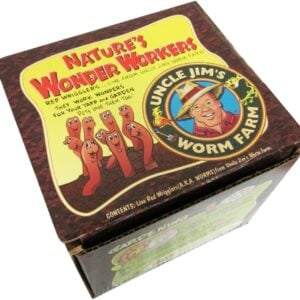
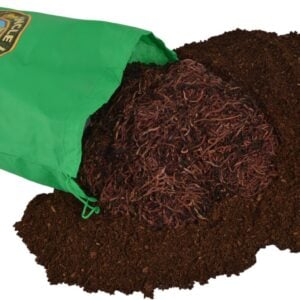
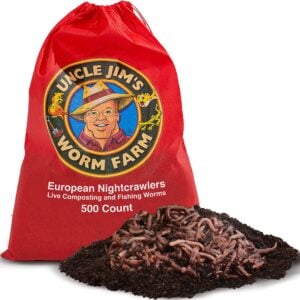




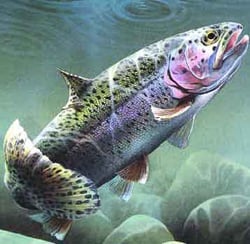
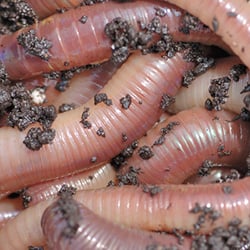

One thought on “Earthworms: A Great Source of Nutrients for Your Reptilian Pet”
Seeking earth worms and red wiglers. I’m in Canada